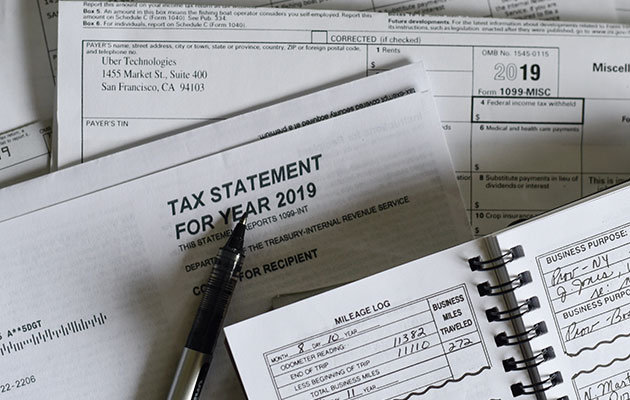-
Articles
The Impact of the Draft Dispute Resolution on Payment of Construction Contract Act
Introduction
A Construction Contract may be interpreted as a “Hire of Work” contract under the Civil and Commercial Code of Thailand (the “CCC”). In such regard, the CCC covers six issues:
(i) Definition of the “Hire of Work” contract and the conditions concerning the procurement of materials;
(ii) Defects;
(iii) Cause for termination or cause for reduction of fees;
(iv) Right to withhold the fee;
(v) Payment; and
(vi) Non-payment in the event of an event of force majeure.
Although the CCC outlines several other issues under the titles “Obligation” and “Contract” which are not mentioned in the Hire of Work section; nevertheless it is considered as industry standard that this is not enough to address the complications and issues which arise with a Construction Contract, such as the time-sensitive nature of the contract. Additionally, the contractual parties, both the contractor and hirer, often have the opinion that the laws concerning the Construction Contract are unfair. In such regard, the contractor believes that the hirer has a higher bargaining power than the person holding the contract fee; whilst the hirer feels as if it is under constant threat of abandonment of work by the contractor[1]. Without a process in place to address the complexity that comes with a Construction Contract, it leaves room for the parties to figure it out themselves.
The United Kingdom, Australia, New Zealand, Malaysia and Singapore have addressed such issues by passing laws aimed at resolving disputes that may arise from a Construction Contract. In this regard, the Thailand Arbitration Centre (THAC) has introduced a draft Act on Dispute Resolution of Payments in Accordance with a Construction Contract B.E. ….. (the “Act”).
Application of the Act
In order to determine the application of the Act, the definition provided by the Act must be examined. In such regard, Section 5 of the Act provides that the Act shall be applied to a Construction Contract executed in writing, under which the performance of work whether in whole or in part is performed within the Kingdom of Thailand regardless of whether or not the governing law is the Law of Thailand or otherwise[2].
Based on said Section 5, any Construction Contract, under which the performance of work is executed even partly in Thailand, will be governed by this Act. The term “Construction Contract” is defined as a contract concerning construction work or construction consultation relating to construction work[3]. The said provision states further that the term “construction work” includes “construction, alterations, repairs and demolition pursuant to the laws of building control, and shall include the management of construction area, inspection and improvement of soil, soil digging, foundation work, construction area adjustment, manpower procurement, procurement of materials for construction work and installation of systems within the particular building(s)”.
The limitation to the application of this Act is that the word “building” is defined in Section 3 to cover only the following:
- “Building” pursuant to the laws of building control;
- Road, port, railway track, cable car, canal, airport or airport runway;
- Water drainage system, irrigation system and river management system;
- Electrical, mechanical, water, gas, petrochemical or telecommunication related work; and
- Bridge, railway bridge, dam, water reservoir, embankment, piping work or piping system work, waste management, water conveyor, underground pipe, tunnel, driveway, car park, piling work, pile drilling work and reclamation work.
Moreover, construction consultation is also considered as a Construction Contract because it relates to construction work as defined under this Act and mentioned above.
The Act is, however, not applicable to the Construction Contract specified under Section 6, which has the following characteristics:
- Emergency construction in the event of war or environmental disaster such as flood, earthquake, landslide, fire or other emergency construction which cannot be foreseen; and
- Construction relating to military security such as military base and barracks.
Additionally, this means that the Act also applies to a contract under which one of the parties is a government authority (except for work that is exempted from the application of this Act, as mentioned above), and that the application of this Act is absolute; which means that the parties of a Construction Contract may not agree to exempt the application of the Act. Section 7 clearly states that any provision of the contract which is against the provision provided under this Act or any provision which causes the contract to fall out of the governance of this Act shall be void.
Term of Payment
The Act is intended to address the term of payments of a Construction Contract. Section 8 of the Act outlines the term of a Construction Contract that is prohibited by the Act. Any provisions which are of the following characteristics are void:
- A provision which imposes a condition of the time of payment or obligation to pay on any party depends on the performance of obligation in full or in part from any third party;
- A provision which contains a condition that a performance of obligation by any party depends on the financial status, the existence of funds or withdrawal of funds from any third party;
- A provision which imposes a condition that a performance of obligation by any party depends on the commencement of performance of obligation pursuant to a contract or any agreement; and
- Other provisions as prescribed in the Ministerial Regulation.
This provision aims to facilitate the contractor in receiving payment under a Construction Contract because the person receiving the payment is usually a contractor. However, the term “pursuant to a contract or any agreement” as provided under Section 8 (iii) may cause confusion as to whether the Act’s intention is for it to mean: a) the current Construction Contract and/or any other agreement; or b) any other Construction Contract and/or any other agreement that is not the Construction Contract to which the performance of obligation is required. If the Act’s intention is for it to mean: a) which includes the Construction Contract in question, it imposes the restriction and protection the hirer may have against the contractor namely the withholding right of the payment thus loosen the grip of control the hirer may have to the contractor especially in Section 8 (iii) in which some construction contract requires that the payment be made in installments and that the installment may be paid once each of the construction work has started. This mechanism provides a withholding right to the hirer to not pay the next payment to the contractor without commencing the next part of construction work. However, if b) is applied, the Act’s intention should be that the performance of obligation pursuant to the Construction Contract should not be bound by a performance of obligation of another contract or agreement.
Although the Act is currently in draft form and thus subject to amendments and is not finalized, it is worth noting that the provisions of the Act clearly lean towards the contractor rather than the hirer because it guarantees the payment to the contractor by ensuring that the obligation to pay does not depend on any condition, regardless of whether such condition appears in any other Construction Contract or agreement. For example, under Chapter 2 of the Act titled “Adjudication Process”, which outlines the dispute resolution mechanism for a dispute relating to a Construction Contract, the adjudication process may only commence with compliance to Section 15 of the Act, which dictates that, in the event where the debtor fails to fulfill its obligation to pay to the creditor pursuant to the Construction Contract regardless of the reason claimed by the debtor; if the creditor wishes to commence the adjudication process, the creditor shall send a notice to the debtor claiming the payment pursuant to the Construction Contract. The notice must include:
- Amount of unpaid fee(s) and due date;
- Details and circumstances including provisions of the disputed Construction Contract;
- Details of the work or services relating to the disputed Construction Contract; and
- Wording which indicates that unless the payment is made within a specified time, the creditor will commence the adjudication process.
The right to commence the adjudication process leans towards the contractor because it is the party to which the payment is usually due. Moreover, after the notice is given to the hirer, the hirer is expected to respond by providing a letter challenging the amount claimed in the notice sent by the creditor within 15 days from the date of receipt[4]. If the hirer does not make the payment within the specified period or does not respond within the said period, the contractor may commence the adjudication process. It is worth noting that the Act does not specify as to what would happen should the hirer challenge the claimed amount. This is because Section 17 states that: “Provided that the debtor does not fulfill its obligation to pay by the due date as prescribed in the notice or does not challenge the amount claimed by the due date, the creditor may submit the claim to commence the adjudication process”.
Additionally, there is no provision concerning any time constraints on the creditor to commence the adjudication process after the conditions outlined under Section 17 are met. However, regarding the debtor, provided that the creditor has submitted its claim to the Institution to commence the adjudication process, the time limit to respond to the claim made by the creditor is seven days[5]. If the debtor fails to submit its argument within such time frame, the adjudication process would still proceed.
The said provision is, in our opinion, flawed due to the fact that in a complicated real estate project in which several contractors or subcontractors are involved, and several tasks are to be performed by several parties, it is rather hard for the hirer to prepare its response within seven days. Provided that the decision of the adjudicating panel is binding on the insurer or the parties of the dispute unless revoked by (i) the court of justice; (ii) settlement agreement entered into by the parties of the dispute; or (iii) the court or arbitral tribunal has decided otherwise on the dispute[6] - the time frame provided under the Act is rather limited and may be deemed insufficient. At present, we find no provision concerning any extension of the said time frame provided under the Act. Furthermore, due to the fact the Act has adopted a “No Contracting Out” clause under Section 7, which means that all Construction Contracts which fall under the definition provided in the Act, this will be governed by the Act and the parties may not agree otherwise.
Conclusion
Based on the provisions contained in the Act, it can be concluded that the wordings of the provisions are considered more favourable to contractors who specifically guarantee that the obligation to pay by the hirer is honoured, such as in Section 8 of the Act; under which all the prohibited provisions aim to guarantee the receipt of payment by contractors.
Additionally, the adjudication process also raises issues. The time frame for the hirer to respond will be a point of discussion on whether or not sufficient time has been given to the hirer to prepare itself for any claim made by the contractor. While a swift dispute resolution mechanism is beneficial to all, the question will be raised by the hirer in the Construction Contract as to whether they have been fairly treated by the process introduced by the Act. However, the Act is currently in draft form and therefore subject to further amendments; consequently. we will continue to follow up the developments of the Act and promptly inform you as and when there are any further developments.
[1] “THE RIGHT TO RECEIVE PAYMENT AND DISPUTE RESOLUTION BY ADJUDICATION FOR A CONSTRUCTION CONTRACT”, Sutee Tantivanichanon
[2] Section 5 of the Act
This Act shall be applied to a Construction Contract which is executed in writing, under which the performance of work as described by the Construction Contract is performed whether in whole or in part in the Kingdom of Thailand regardless of whether or not the Law of Thailand is determined as the governing law.”
[3] Section 3 of the Act
“Construction Contract” refers to construction, alterations, repairs and demolition pursuant to the laws of building control, and shall include the management of construction area, inspection, soil improvement, soil digging, foundation work, construction area adjustment, manpower procurement, procurement of materials and installation of systems within the particular buildinProvided that the debtor does not fulfill its obligation to pay by the due date as prescribed in the notice or does not challenge the amount claimed by the due date, the creditor may submit the claim to commence the adjudication processg”.
[4] Section 16 of the Act
[5] Section 23 of the Act
“The Respondent may submit its objection after the Notification is received. Such objection shall stipulate clearly the argument or the reason for such objection”.
[6] Section 36 para. 1 of the Act
“Any party may request for the revocation of the ruling by submitting such request to the competent court of law within 15 days after the copy of the ruling is received, or the date whereby such ruling is amended if the amendment of the ruling is requested”.








With more than forty years of experience, Chavalit is highly regarded as a leading figure in Thailand. His areas of specialization include dispute resolution, intellectual property, TMT and e-commerce, as well as M&A, foreign investment and corporate law. His extensive experience also includes advising on trade competition, corporate recovery and business reorganization. In particular, Chavalit is renowned in the areas of dispute resolution and intellectual property. He was selected as a Litigation Star by Benchmark Litigation Thailand 2021 and is ranked as a leading individual for intellectual property in Thailand by Chambers Asia-Pacific 2021.